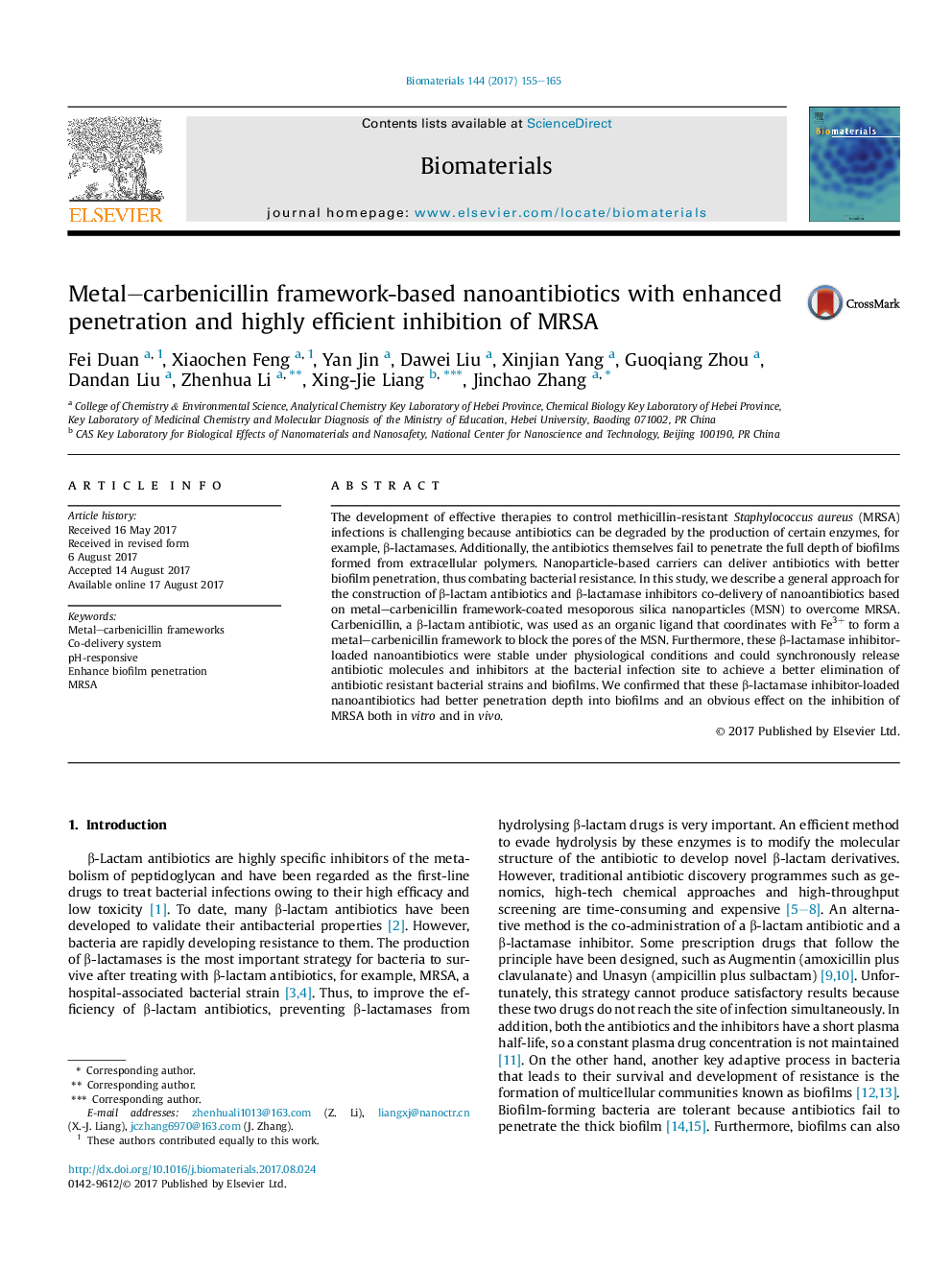| Article ID | Journal | Published Year | Pages | File Type |
|---|---|---|---|---|
| 4752259 | Biomaterials | 2017 | 11 Pages |
The development of effective therapies to control methicillin-resistant Staphylococcus aureus (MRSA) infections is challenging because antibiotics can be degraded by the production of certain enzymes, for example, β-lactamases. Additionally, the antibiotics themselves fail to penetrate the full depth of biofilms formed from extracellular polymers. Nanoparticle-based carriers can deliver antibiotics with better biofilm penetration, thus combating bacterial resistance. In this study, we describe a general approach for the construction of β-lactam antibiotics and β-lactamase inhibitors co-delivery of nanoantibiotics based on metal-carbenicillin framework-coated mesoporous silica nanoparticles (MSN) to overcome MRSA. Carbenicillin, a β-lactam antibiotic, was used as an organic ligand that coordinates with Fe3+ to form a metal-carbenicillin framework to block the pores of the MSN. Furthermore, these β-lactamase inhibitor-loaded nanoantibiotics were stable under physiological conditions and could synchronously release antibiotic molecules and inhibitors at the bacterial infection site to achieve a better elimination of antibiotic resistant bacterial strains and biofilms. We confirmed that these β-lactamase inhibitor-loaded nanoantibiotics had better penetration depth into biofilms and an obvious effect on the inhibition of MRSA both in vitro and in vivo.
